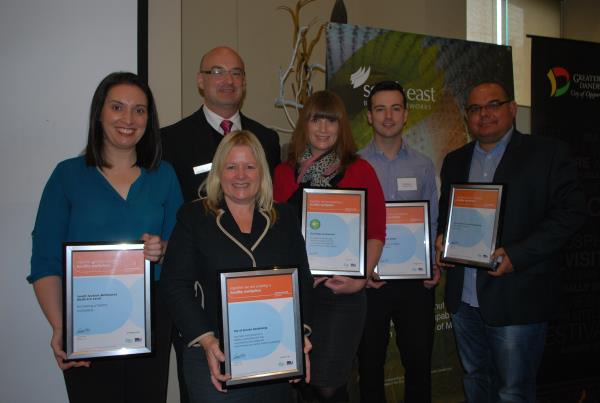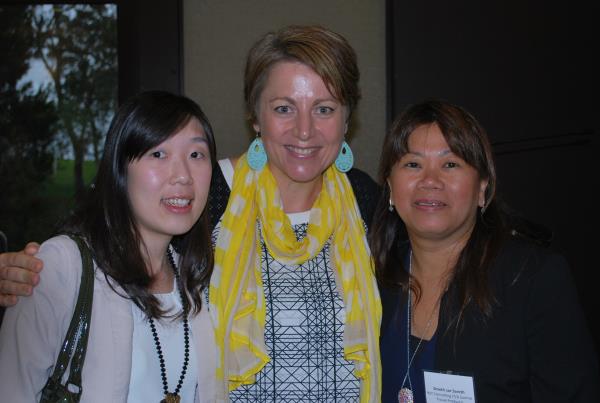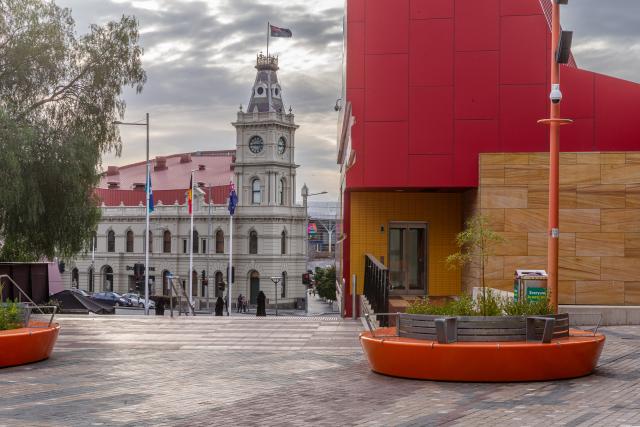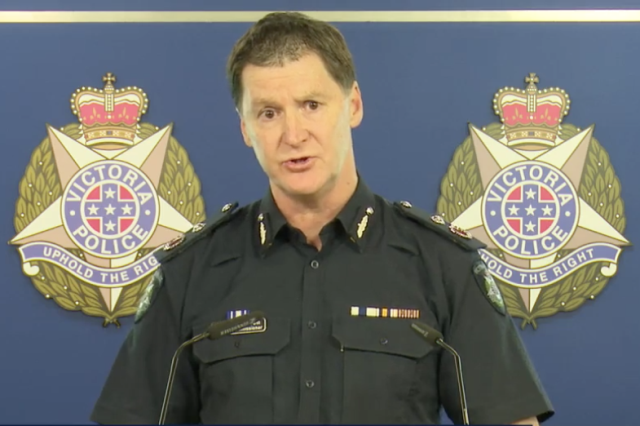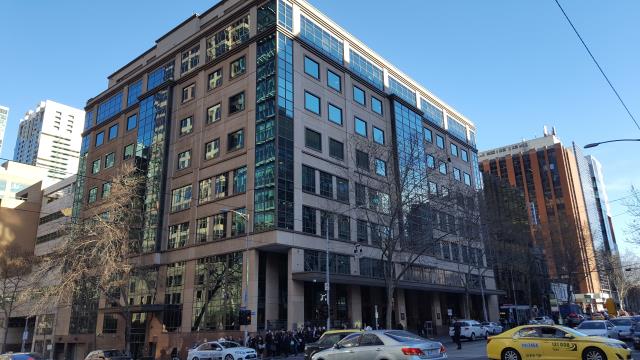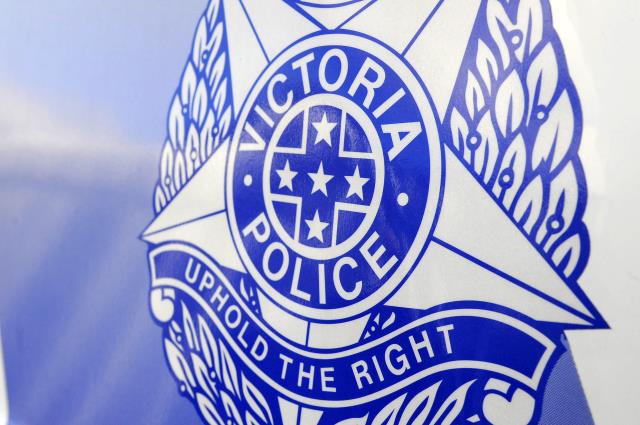COMEDIAN Nelly Thomas isn’t shy about laughing at mental illness, specifically her own life-long tussle with anxiety.
Ms Thomas entertained a predominately female audience on Friday at a South East Business Networks showcasing women in business breakfast.
Held to co-incide with International Women’s Day, the breakfast had a serious message about mental health and wellbeing in the workplace.
Awards were presented to businesses participating in the SEBN Healthy Workplaces Achievement Program during the morning.
Penne Dawson from SANE Australia also spoke, but it was Ms Thomas who cut through the stigma surrounding mental health with a candid address about her own history of anxiety and depression.
She cheerfully admitted to relying on anti-depressant medication and asked who in the audience took anti-depressants. One person raised their hand.
She applauded their courage, but said statistically there would be others in the room who were too embarrassed or ashamed to admit they take medication for a mental illness.
“Australian are nuts,” she said, likening depression not to a black dog but a drunk dog.
Statistics show that 45 per cent of Australians will experience a mental illness at some stage in their life and that 20 per cent of the population experience mental illness in any 12 month period.
According to the World Health Organisation, depression will be the number one affliction affecting people in both the developed and developing world by 2030.
Ms Thomas has suffered chronic anxiety since her early 20s.
“I like to sing it (the word anxiety). It sounds less like a debilitating disease and more like fun,” she said.
“I also had a bit of depression which makes me more interesting in that I’m not just anxious all the time.”
She said depression left sufferers feeling “blurgh!” all the time.
“And not just a little bit, like you’ve had a bad day or something’s gone wrong, but it’s a persistent blurgh.
“I think a better description than black dog, is drunk dog.
“You feel so drunk you are out of your mind and you also can’t snap out of it.
“Imagine someone so drunk that during a driving test they are asked to walk along a straight line.
“Cognitively you just can’t do it. With depression you can’t just cheer up. It’s not cognitively possible. You need help.“
She likened anxiety to a little yappy dog “the kind Paris Hilton would carry in her bag”.
“It just won’t shut up. It’s yappy and persistent. That’s what anxiety feels like when your having an attack.
“You find it hard to focus, you are irritable, you get tight muscles in your neck and back, headaches and insomnia. And you worry. If I had to pick one word to describe anxiety it would be worry.
“Ordinary thoughts turn into big things. I might be walking my kids to school when I see two lemons on the path. My first thought is ‘I’ll pick these up, after all lemons are a $1 each’. But my second thought is ‘what if a serial killer has injected them with poison?’.
“There is no way I am going to cook with those lemons so I pick them up and send them to Sam Newman.”
She said anxious behaviour in the workplace – working late, checking emails and taking phone calls after hours, perfectionism and refusing to take time off – was often rewarded.
“Which manager doesn’t love a perfectionst as long as they get things finished.
“But in the long term they (the behaviours) can come back to bike you like that little dog.”
She said anxiety and depression were never really cured, but could be managed.
“When I was young I hoped it would go away but it turns out that hope is not a medication. If you try and ignore it it will get worse.
“And when people say ’just relax’ that is really not helpful.“
What has worked, she said, was professional help, medication, a healthier diet, exercise, listening to music and laughter.
“Sixty-five per cent of people don’t seek treatment because it’s hard to find someone and for some it’s expensive.
“I know Dandenong is one of the regions where it is hardest to access psychiatrists or psychologists because they are concentrated in the inner city.
“But if you do get (professional) help you will feel a lot better.“
Penne Dawson encouraged businesses to take advantage of SANE’s workshops and training programs.
She said almost 50 per cent of employees take time off for depression but most don’t disclose the reason they are having time off, and that many managers don’t have HR support when it comes to dealing with mental illness in the workplace.
Those who need help for anxiety or depression can contact SANE on 1800 187 263.
Breakfast wakes to a drunk dog day

Digital Editions
-
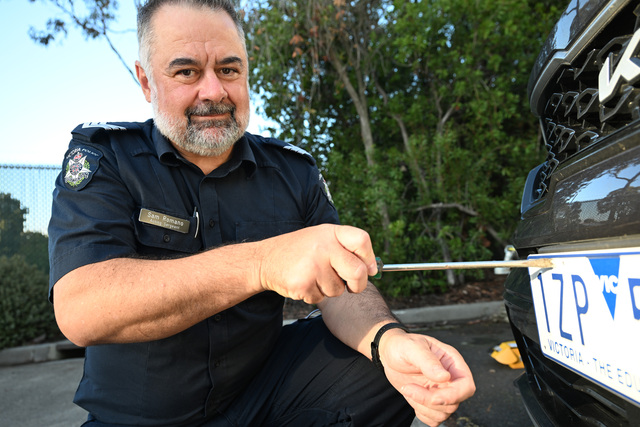
Stolen number plates surging
Purchase this photo from Pic Store: 487805 Police are calling for vehicle owners to fit anti-theft screws to dampen a record number of number plate…

